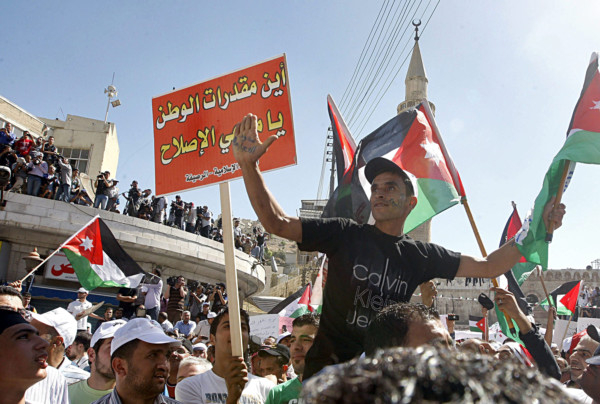
I never thought that suicide, suicide attempts and other mental health conditions were growing at such an alarming rate among the Arab youth.
Moreover, it's distressing to note that our youth, in some parts of the Arab world, are actually glorifying suicide as an act of “heroism".
It is not. They should realise this.
A recent report published in the International Journal of Public Health, notes that Arab youth are losing hope for the future.
Thousands suffer mentally while many more put an end to their lives either by hanging themselves or by consuming pesticides or by slashing their wrists or simply setting themselves on fire.
The report, parts of which appeared in press articles, covered 22 Arab countries plus Afghanistan and Pakistan. It concluded that suicide and murder in the Middle East region were taking the lives of people ten times more than wars and conflicts — especially among men.
“In 2015, nearly 30,000 people in the region committed suicide and another 35,000 died from interpersonal violence, representing increases of 100 per cent and 152 per cent respectively over the past 25 years.”
By comparison, in other parts of the world, and during the same period, the percentage of people who died because of suicide increased by 19 per cent and interpersonal violence by 12 per cent.
The rates of suicide, according to the report, were high in the age groups of 15-29 years and above 60 years.
Means of suicide vary as well as the reasons. For example, in Tunisia, 365 people aged between 30 and 39 committed suicide in 2015.
Sadly, 60 per cent hanged themselves and nearly 15 per cent ended their lives by burning themselves to death, following in the footsteps of Mohammad Bu Azizi.
The 27-year-old Tunisian street vendor set himself on fire in late 2010 after a municipality official confiscated his wares, humiliated and harassed him.
Catalyst
Bu Azizi is now part of history as the Arab youth who was the catalyst behind the Tunisian revolution and elsewhere, in what became known as the “Arab Spring”.
Many look at him as an “epic character” and a “heroic martyr”.
His story and the circumstances under which he killed himself differ from what other youth are passing through, I believe. Others should not imitate him.
In countries like Libya, Syria, Yemen, Iraq and Afghanistan, people commit suicide because of social, economic and psychological reasons.
Deteriorating security, social and economic situation in war-torn countries, such as Libya, Sudan and Yemen, is coupled with the lack of psychiatrists.
In the three countries, there are just 0.5 psychiatrists per 100,000, compared with a range between 9 and 40 per 100,000 in European countries.
I feel sad for all those who lost their lives because they could not take the pressures.
I feel even more distressed to see one of the basic Islamic teachings, which explicitly forbids suicide, is not being adhered to.
Motivation, dream
I feel concerned because many Arab youths lack personal motivation, ability to dream for a better tomorrow, love of life, and have no proper aiding environment.
When the “Arab Spring” hit the streets, people cheered saying that the youth were taking hold of their destiny.
However, when many cities ended up in civil wars, some analysts said one of the reasons for failure was the lack of the capabilities in the youth to transform their wishes into reality.
It is sad to see that hundreds of Arab youths are killing themselves in this fashion.
They should be convinced not to do so. Societies have a responsibility in directing the youth towards productive and positive activities.
I am not trying to sound idealistic, and I am not ignoring the social, economic and security situation in many Arab countries either.
I am not saying that there must be job for every Arab youth — seeking a work opportunity, a car and a house loan or a piece of land to start their own business.
What I am calling for is more constructive thoughts and ideas to be implanted in their hearts and minds, to make them realise that suicide is against our religion. That their lives matter.
All lives have value.
Awareness on this can be raised by either spreading the concept of volunteer work or by stressing the importance of reading books. (Lack of reading is another phenomenon that needs to be addressed, separately.)
Other ideas could include participation in social and sporting events and having discussions in small groups to express fears, concerns and negative feelings — similar to those held in western countries for people to share their bad experiences so that they can talk about it more openly and overcome the ill-effects.
To cite a simple example, in the Montessori preschool system, children aged three years are mixed with children aged between one and two years in the same class.
The idea is that the younger ones will learn from those older than them, and the older ones will have a sense of responsibility towards those younger to them. Social circles could be built on the same principle.
Why can’t we encourage high school students to look into the option of majoring in disciplines like Psychology, and not just studying it because the GPA [grade point average] did not allow other specialisations?
We can think of many concepts, but one thing that we always need to keep in mind is this: The youth should not sit behind computers alone for long hours, browsing the internet — just because they have nothing else to do — and fall prey to terrorist organisations that promote death. The youth should be encouraged not to look at killing themselves as a way of solving problems — any problem. They should remember that the world is full of possibilities.












